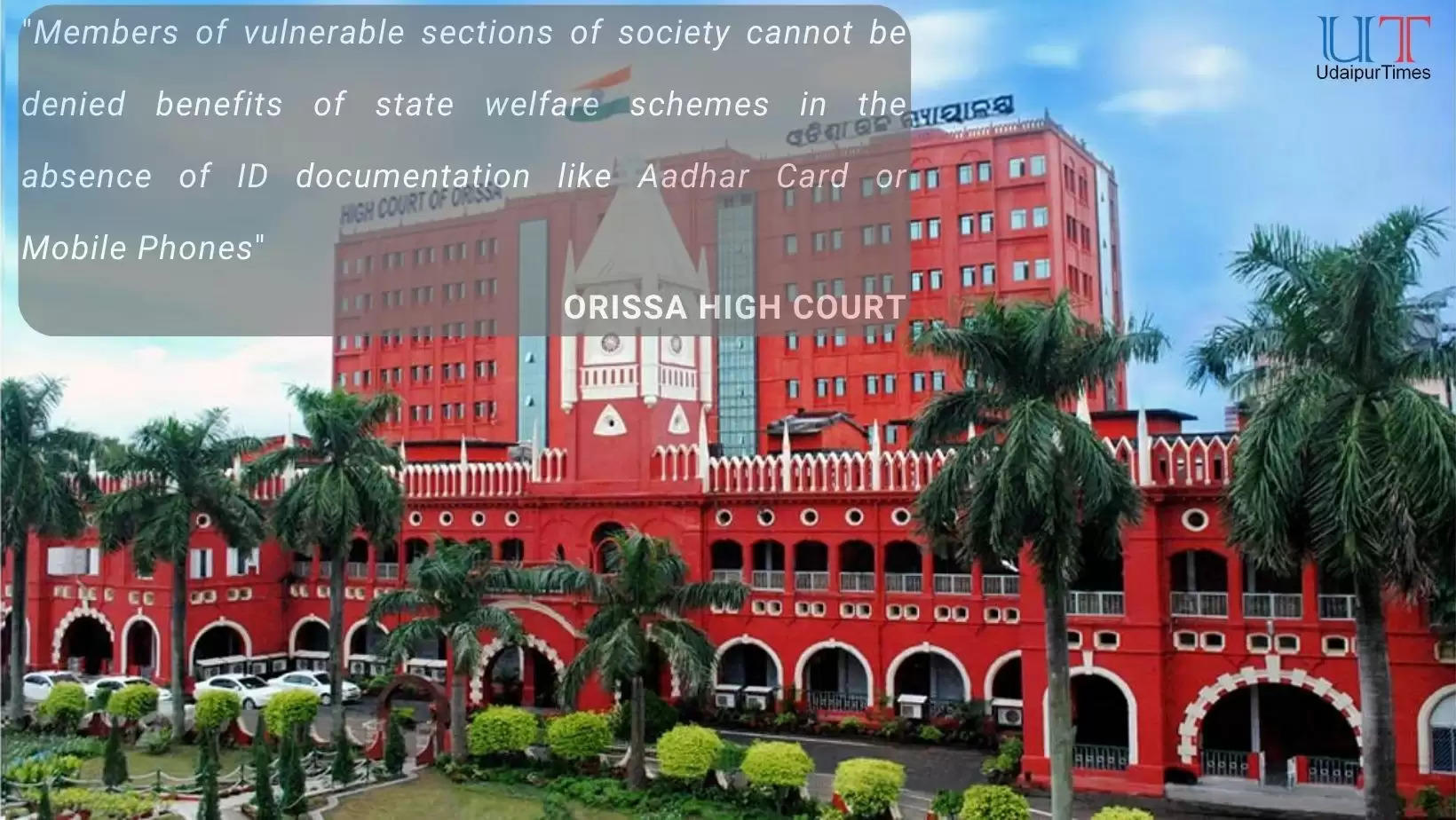Absence of ID like Aadhar Card or a mobile phone cannot deprive citizens of welfare schemes
The Orrisa High Court in its judgement titled Mantu Das vs Union of India on 18 May has cautioned both the state and central government to ensure that citizens belonging to the vulnerable sections of society are not denied benefits of welfare schemes just because they do not possess identity documentation such as Aadhar Card or a mobile phone.
The judgement by the DIvision of Bench of Orissa High Court of Hon'ble Chief Justice Dr. S. Muralidhar and Hon'ble Justice Gourishankar Satapathy mentioned that welfare schemes are meant for fulfilling the needs of the most vulnnerable and poor sectoins of society who can never be excluded from the list of beneficiaries on the ground of not having an Aadhar Card or a mobile phone.
The hearing related to a PIL related to deaths of children in the Danagadi Block in Jajpur district of Orissa. The Division Bench mentioned in Para 2 of its judgement, "As regards the 11 children whose instances were cited in the petition, the Collector, Jajpur has in his affidavit given a break-up which confirms that 4 of the 11 children were severely and acutely malnourished (SAM). 3 of the children were moderately acutely malnourished (MAM). One child, Subhalaxmi Tarai, who was suffering from cerebral palsy and secondary malnutrition had died. The remaining children are stated to be ‘normal’ children i.e. not falling within the above categories of SAM or MAM.
During the hearing, the Court noticed that the entire coverage of the population by the Public Distribution System (PDS) under the National Food Security Act (NFSA) is not "universal".
In its judgement the Court said, "Today’s discussion threw up expressions like ‘allocation’ and ‘vacancies’ pointing to the fact that there might be sections of our society, and this includes the most vulnerable, who may not be covered under the PDS system. Since that distributon of nutritional supplements and rations happens only through the PDSS, but there is every likelihood that a child or an expectant mother in a family in need of such supplements and rations may not receive them."
Citation: LiveLaw (Ori) 64.
Adv. Sanjeev Sirohi is a Lawyer registered with the Meerut Bar. View expressed in the post are that of the author.
To join us on Facebook Click Here and Subscribe to UdaipurTimes Broadcast channels on GoogleNews | Telegram | Signal



